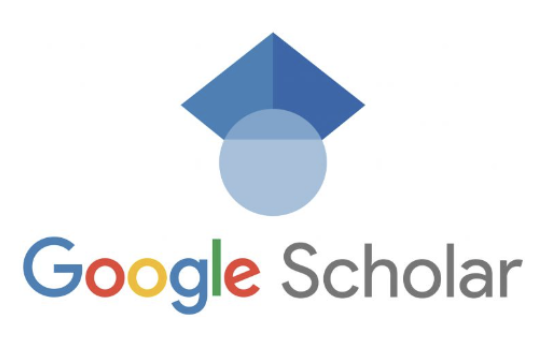Is Google Scholar the Same as PubMed? A Comprehensive Comparison – In today’s digital age, researchers and academics rely heavily on online databases to access scholarly literature. Two popular platforms that offer vast collections of academic resources are Google Scholar and PubMed. While both platforms serve the same purpose of providing access to scholarly articles, they have distinct features and functionalities. In this article, we will compare and contrast Google Scholar and PubMed, exploring their strengths, weaknesses, and unique offerings.
1. Introduction
1.1 The Importance of Online Databases for Researchers
The advent of the internet has revolutionized the way researchers conduct their work. Online databases have become indispensable tools, offering a wealth of scholarly resources at researchers’ fingertips. Among the most widely used platforms are Google Scholar and PubMed, which provide access to a vast array of academic literature. However, despite serving a similar purpose, these platforms differ significantly in their search capabilities, content coverage, and user experience.
2. Google Scholar: Exploring Its Features and Functionality
Google Scholar, a product of the search engine giant, has gained widespread popularity among researchers due to its ease of use and extensive coverage. While it may not be as specialized as PubMed, Google Scholar offers several unique features that make it a valuable resource for researchers.
2.1 Extensive Multidisciplinary Coverage
One of Google Scholar’s primary strengths is its multidisciplinary coverage. Unlike PubMed, which focuses primarily on biomedical literature, Google Scholar includes a wide range of disciplines, including social sciences, humanities, and natural sciences. This breadth of coverage makes it a valuable tool for researchers working across different fields.
2.2 Full-Text Article Search
One of the most significant advantages of Google Scholar is its ability to search within the full text of articles. This feature allows researchers to uncover specific details, such as place or personal names, that might not emerge in a traditional keyword search. PubMed, on the other hand, only provides access to the abstracts of articles, requiring researchers to rely on other sources for full-text access.
2.3 Relevance-Ranked Search Results
Google Scholar utilizes a relevance-ranking algorithm to deliver search results. This means that articles appearing at the top of the search results are considered more relevant to the search query. In contrast, PubMed ranks search results based on publication date, which may not always align with a researcher’s needs. The relevance-ranking feature of Google Scholar makes it easier for researchers to find the most pertinent articles quickly.
2.4 Citation Data and Bibliography Manager
Another valuable feature of Google Scholar is its ability to display citation data. By clicking on the “Cited by” link, researchers can view a list of publications that have cited a particular article. This information provides insights into the impact and influence of a given piece of research. Additionally, Google Scholar offers a Bibliography Manager that allows users to export records directly to popular reference management tools like EndNote and RefWorks, streamlining the citation process.
3. PubMed: Unveiling Its Unique Offerings
While Google Scholar provides broad coverage and unique search capabilities, PubMed, a database maintained by the National Center for Biotechnology Information (NCBI), offers specialized content tailored to the biomedical field. PubMed’s distinct features and functionalities make it an indispensable resource for researchers in the life sciences.
3.1 Comprehensive Coverage of Biomedical Literature
PubMed’s primary strength lies in its comprehensive coverage of biomedical literature. With over 17 million records from more than 5,000 journals dating back to 1949, it provides a vast repository of research articles, clinical studies, and reviews. This specialized focus enables researchers in the biomedical field to access the most relevant and up-to-date literature in their domain.
3.2 Controlled Vocabulary and Advanced Search Tools
PubMed employs a controlled vocabulary known as Medical Subject Headings (MeSH). This feature allows researchers to search for concepts rather than relying solely on keywords. For example, by searching for the MeSH concept “stomach neoplasms,” researchers can access articles that use alternative terms such as “gastric cancer” or “gastric neoplasms.” This helps ensure comprehensive and accurate search results, enhancing the precision of research queries.
3.3 Integration with Other NCBI Databases
One of PubMed’s unique advantages is its integration with other NCBI databases. Researchers can seamlessly navigate from PubMed to molecular biology and genetics databases, such as GenBank and UniGene, for a more holistic understanding of the research landscape. PubMed also provides direct links to the National Institutes of Health’s (NIH) free PubMed Central repository, enabling researchers to access full-text articles that may not be available through other means.
3.4 Specialized Tools for Researchers
PubMed offers several specialized tools to assist researchers in their work. Clinical Queries allows users to filter search results specifically for clinical research, making it easier to find articles relevant to patient care. The Single Citation Matcher tool enables researchers to locate specific articles by inputting limited information such as the author’s name, journal name, and publication year. These tools enhance the efficiency and accuracy of the research process.
4. A Comparison: Google Scholar vs. PubMed
4.1 Content Coverage and Focus
Google Scholar’s multidisciplinary coverage makes it suitable for researchers working across various fields. It includes not only journal articles but also books, conference proceedings, and scholarly websites. On the other hand, PubMed’s focused approach caters specifically to the biomedical field, providing comprehensive access to biomedical literature.
4.2 Search Capabilities and Precision
Google Scholar’s full-text search capability allows researchers to dig deeper into articles and uncover specific details. However, PubMed’s controlled vocabulary and MeSH terms enhance the precision of searches, ensuring that researchers retrieve highly relevant results.
4.3 User Experience and Interface
Google Scholar offers a user-friendly interface that is familiar to those accustomed to traditional search engines. Its relevance-ranking algorithm and citation data provide valuable insights, making it easier for researchers to navigate through search results. PubMed, with its structured records and specialized tools, offers a more tailored experience for researchers in the biomedical field.
5. Conclusion
In conclusion, while Google Scholar and PubMed both serve as valuable resources for researchers, they have distinct strengths and unique offerings. Google Scholar’s multidisciplinary coverage, full-text search capability, and relevance-ranking algorithm make it well-suited for researchers across various fields. PubMed, with its comprehensive coverage of biomedical literature, controlled vocabulary, and integration with other NCBI databases, remains an indispensable tool for researchers in the life sciences. Ultimately, the choice between Google Scholar and PubMed depends on the specific research needs and preferences of individual researchers.
Remember, the key to successful research lies in utilizing a combination of these platforms and leveraging their strengths to access the most relevant scholarly literature in your field. So, whether you choose to harness the multidisciplinary power of Google Scholar or the specialized focus of PubMed, both platforms have their unique contributions to offer in your academic journey.
Please note that the information provided in this article is based on available sources and may be subject to change. It is always recommended to refer to the official websites of Google Scholar and PubMed for the most up-to-date information and features.
References:
-
Badke W. Google Scholar and the researcher. ONLINE. 33, no. 2(May-Jun 2009):47-9.
-
Falagas ME, Pitsouni EI, Malietzis GA, Pappas G. Comparison of PubMed, Scopus, Web of Science, and Google Scholar: strengths and weaknesses. FASEB Journal. 22, no. 2(Feb 2008):338-42.~ Patricia Weiss

